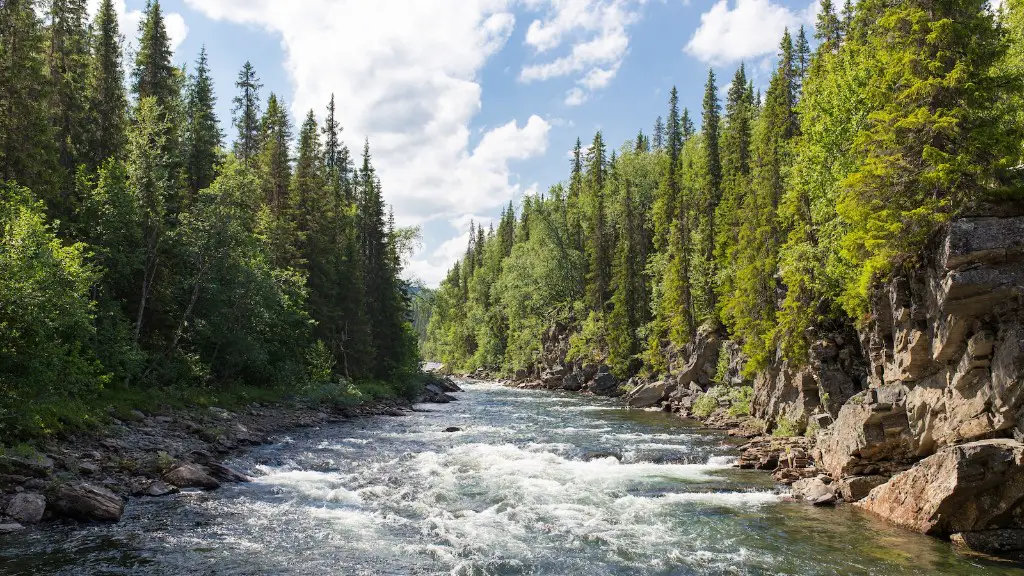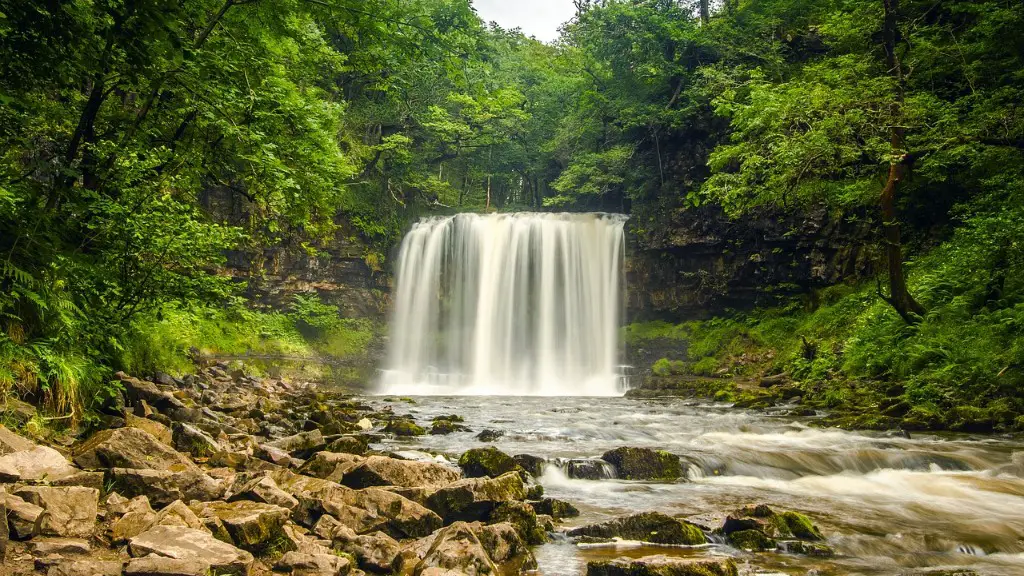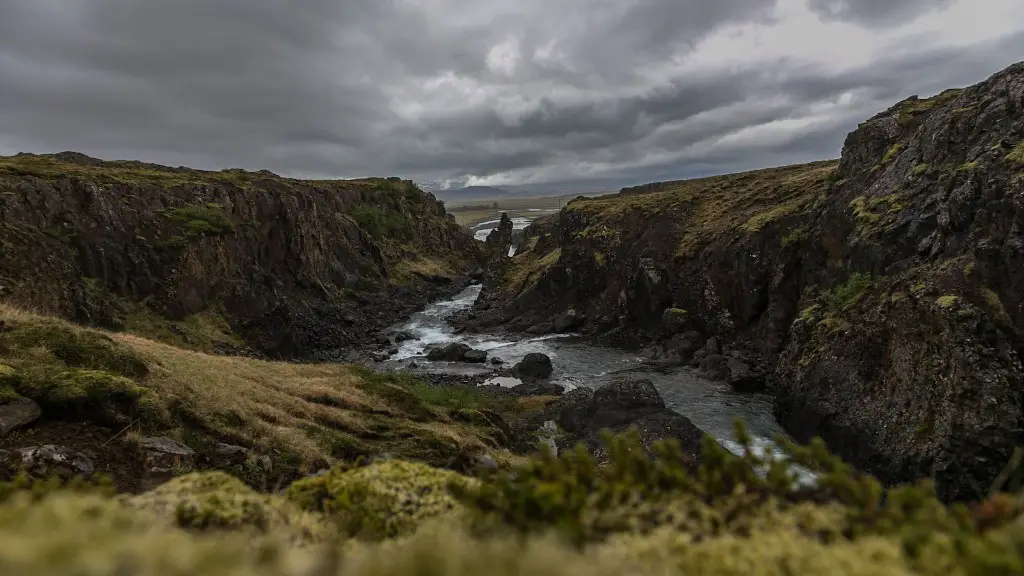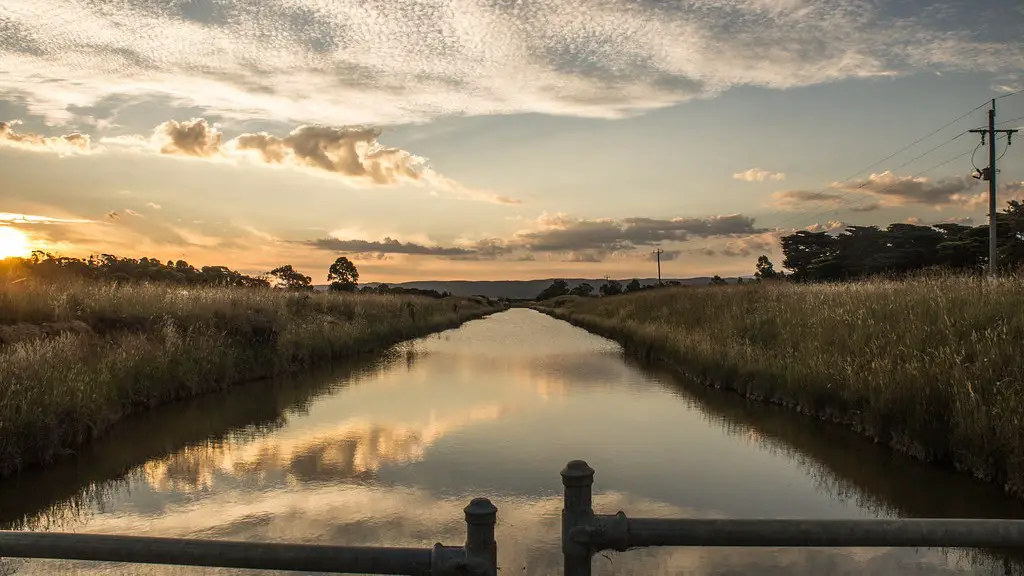Mississippi is a vast river that runs through some of the most iconic cities in the United States. From Memphis, TN to St. Louis, MO, the Mississippi has been integral to the transportation of commerce, recreation, and leisure. As part of the landscape, it is not uncommon to see a variety of wildlife, and the majestic alligator is no different. But are alligators really in the Mississippi River?
The Climate Suited for Alligators
It is safe to say that the southeastern United States is where one would find the most alligators in our country. Louisiana, Mississippi, Alabama and Florida all have large populations of these reptiles. The strong connection between alligators and that particular area of the United States is due to the climate being conducive for an alligator’s survival.
These reptiles require temperatures over 80 degrees Fahrenheit in order to typically lay viable eggs. This range of temperature is achieved regularly in the summertime in some parts of the Mississippi. It is not uncommon for the alligator family to traverse long distances in search of these favorable temperatures.
The Diet of Alligators
In order for any animal to survive in a new space, there must be resources – food, water, and shelter. Alligators, especially the American variety, require a high amount of protein in order to survive. The sources of that protein can be found along the Mississippi River more so in the south portions of its watershed area. Fish are the primary animals that an alligator will consume in the wild. However, they will also eat birds, smaller reptiles, and mammals if they are available.
The Population of Alligators Along the River
The state of Mississippi does have a healthy population of alligators throughout its waters. Reports from the Mississippi Department of Wildlife, Fisheries, and Parks state that the agency stocks the river with the reptiles and some of them have grown large enough to fill the roles of “alpha males” in the space.
The strength of the alligator population is mainly due to the restrictive regulations that have been laid out for its hunting of. Those who wish to hunt the reptiles must undergo certification classes and strict regulations in regard to the boat, equipment, and method of hunting that are used.
The Alligator Danger to Humans
Given its size and predatory behavior, the alligator can be an intimidating creature to those who lack knowledge of its habits. However, the risk of attack by an alligator – particularly in the state of Mississippi – is incredibly low. Despite the 8000 alligators estimated to populate the Mississippi River, the U.S. Fish and Wildlife Service states that there exists only one in every two-million chance of being attacked by an alligator. Such events occur rarely and are not as prominent as other animal attacks in the United States.
Regulation for Alligators in Mississippi
The state of Mississippi does have a very hands-on approach to the control of these reptiles. The Mississippi Department of Wildlife, Fisheries, and Parks employs a number of people to actively monitor sightings, report alligator nuisance calls, and take part in any sort of relocation and/or elimination of the reptiles when necessary.
The department also has a “nuisance alligator program” for those alligators that are causing trouble for citizens, property, or livestock. Trappers are employed by the state and tend to be the only individuals allowed to capture and move the reptiles.
Alligators As a Threat to Native Species
Though alligators are not largely seen as a threat to humans, they can have detrimental effects to local species in the Mississippi area. In a study from the Journal of Natural History and Ecology, it was found that alligators tend to prefer fish and amphibian creatures that already exist in an environment. The native species that are not considered part of the alligator’s diets and those who lack the mobility to escape the predators can be decimated by the introduction of more alligators into the area.
Conservation and Ecological Impact of Alligators
Despite the predatory behaviors of alligators, they are essential to the weaving of the trophic network of the ecosystems they inhabit. Thrashing behaviors of the alligator help broken down and spread material on the bottom of bodies of water. This activity helps to aerate the sediments and allow more oxygenation in the environment.
Alligators also help to control food sources within their habitat. By eliminating certain species of prey, the alligators help to regulate the balance of that particular space. Ultimately, the alligators are an integral part of the overall Mississippi wildlife and its ecology.
Perspectives from Experts on Alligators in Mississippi
“The main roles of alligators in the Mississippi are one of balance,” says U.S. Fish and Wildlife Service representative Brad McGee. “The alligators help to keep prey populations in check, but other species also do. The alligators are among the apex predators in the space and their presence helps to keep the whole system balanced.”
The consensus amongst wildlife experts is that the alligators of Mississippi are providing a service not only to the Mississippi wildlife, but also to the whole Mississippi ecosystem.
The Value of Alligators in Mississippi
Alligators are a beautiful, mysterious part of the Mississippi landscape, and seeing them in person can be an exhilarating experience. States like Mississippi that have large alligator populations are fortunate because it allows the species to continue to exist and thrive within the environment.
In order to guarantee the longevity of alligators in these spaces, we must understand their behaviors, tendencies, and limitations from which our state has placed on them. It is also important to leave them in their natural habitats and observe from a safe distance.
Interaction with Alligators in Mississippi
It is strongly discouraged to interact directly with wild alligators as such behavior challenges the animal’s natural fear of humans and can thus make it more likely to attack a person or a pet in the future. In Mississippi, it is illegal to feed alligators. If it becomes accustomed to being in the presence of humans, it can consider us a source of food, leading to dangerous encounters.
It is essential to remember that the Mississippi alligators are wild animals and must be treated as such. It is advised to be aware of one’s surroundings, keep children and pets close, and not to litter in areas where alligators inhabit.
Research Regarding Alligators in Mississippi
The study of the alligators within the Mississippi space can provide a wealth of information regarding the effects of such animals on the greater environment. Researchers are working towards understanding the movements, behaviors, and relationships of alligators with the other species of wildlife that they share a space with.
The information collected from these studies can help individuals to understand the nature of alligators and how to interact with them in an informed fashion. For those areas heavily populated with these reptiles, understanding the movement patterns and behaviors can help to promote safety and healthy interactions between humans and these animals.
Legal Protections for Alligators in Mississippi
The state of Mississippi has put forth a plethora of regulations for the protection of the alligators in their state. From hunting permits, to size and catch limits, to outright bans in certain regions, Mississippi has remained active and proactive in the protection of these reptiles.
Alligators have been on the endangered species list in the past, but have since been removed. Despite that, Mississippi still enforces a number of regulations as a way of protecting the reptiles from potential abuse and over hunting.
Impact of Wildlife Conservation Efforts on Alligators in Mississippi
The primary focus of the agencies responsible for alligator conservation in Mississippi has been on wetlands management. These efforts focus on building, maintaining, and preserving the wetlands areas where alligators are known to dwell. This focuses on preserving not just the areas for the alligators, but for all the species that occupy the area as well.
Though this is a difficult task, the conservation efforts have shown themselves to be rather successful amongst alligator populations in Mississippi. This can be seen in the large and healthy populations of alligators that inhabit the Mississippi and its tributaries.
Conclusion of the Alligator Population in Mississippi
In conclusion, the alligators within the Mississippi River, and its tributaries, have done well in thriving in this environment. Though seen as a danger to humans and other wildlife, the Mississippi alligators are managed and protected by their state, and thus, ensure their strength and continuation in the region. The value in the alligators lies in their complex relationships and behavior that play out within the trophic network of the Mississippi.





